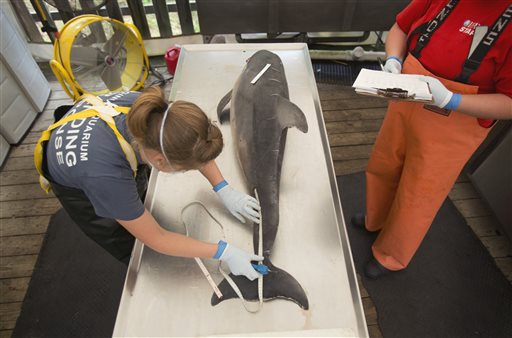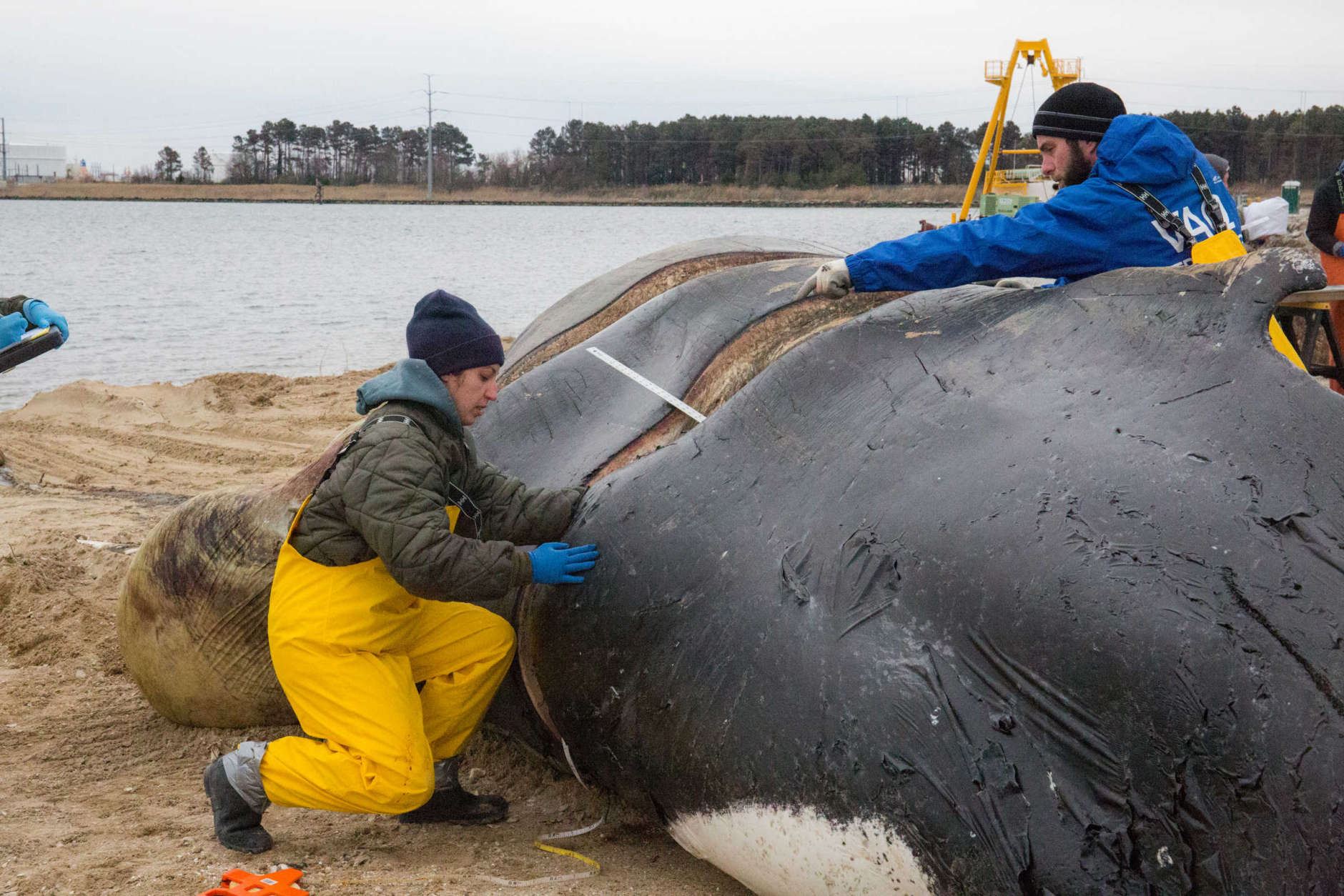
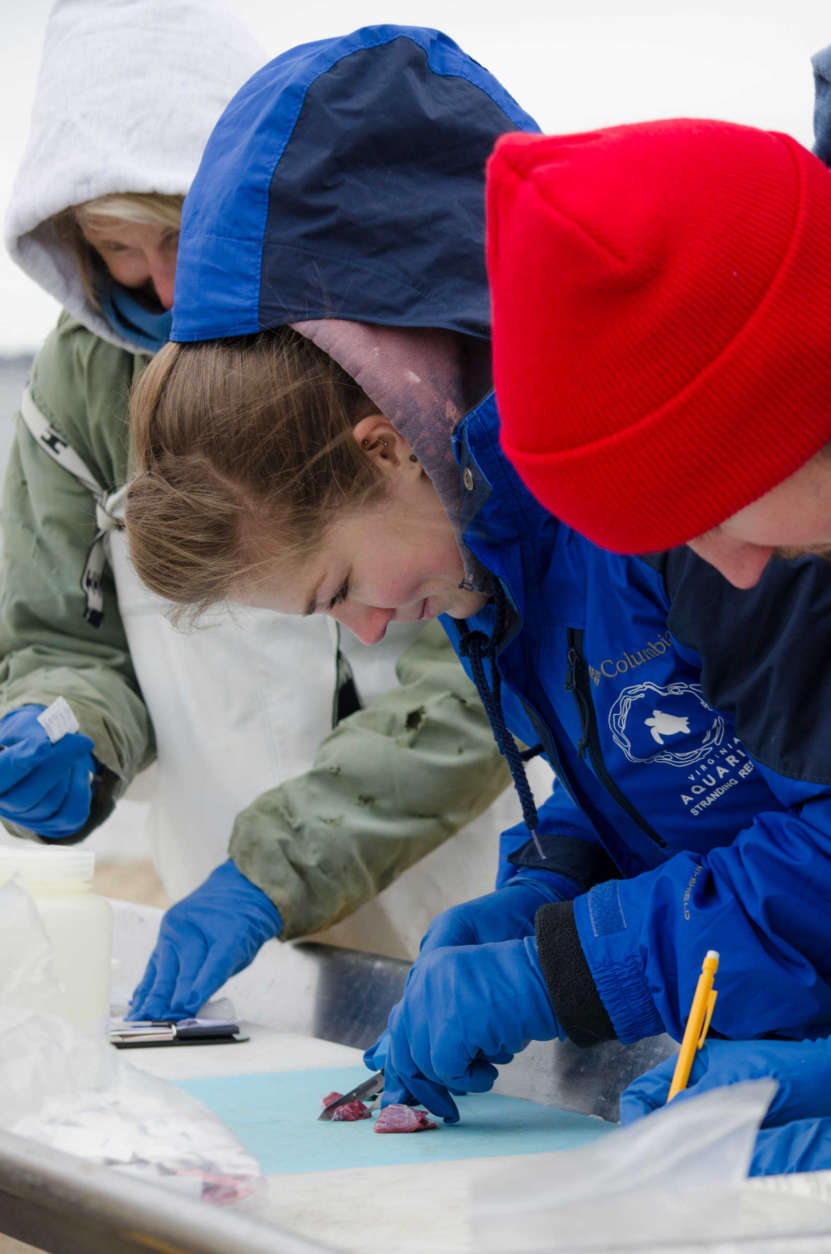
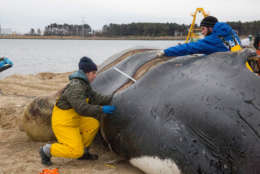
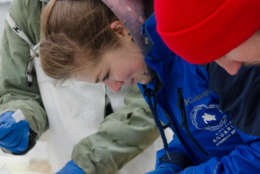
WASHINGTON — Federal authorities have launched an investigation into an unusually high number of humpback whale deaths along the East Coast, with Virginia experiencing one of the highest concentrations of fatalities.
As of Friday afternoon, 42 humpback whales have died since January 2016 in the “Unusual Mortality Event” (UME) declared by NOAA Fisheries on Thursday. North Carolina is the hardest hit state with 11 strandings, but Virginia has had eight in all — five in just the past four months.
Necropsies on a number of the Virginia whales await diagnostic results, but many appear to have been hit by boats or ships according to an email from Alexander Costidis, Ph.D., Stranding Response Program Coordinator for the Virginia Aquarium.
“Three of the five whales in 2017 had injuries consistent with a vessel interaction. Two of those were from large propellers while the third was from a collision (blunt force injuries),” Costidis said in an email.
Referencing information NOAA released Thursday, Costidis also said that historically, the entire Maine to Virginia region would see 1.4 “vessel strike” humpback whales per year.
In Virginia and elsewhere, many whales couldn’t be examined thoroughly because of decomposition and logistical challenges presented by their locations.
Of all of the 42 cases, 20 of the whales have been examined. Ten had propeller wounds or trauma suggesting they’d been hit by ships or boats.
Costidis said the stranding program’s main mission at whale-stranding events is to determine a cause of death that might provide actionable information to better manage the species.
“We collect data that helps us understand such things as how old they are, what they eat, where they have been, and what diseases they might carry, Costidis said in an email.
“It is also really important to us to facilitate the advancement of scientific knowledge by collecting samples for collaborators within the greater scientific community.”
On its website, NOAA said it is gathering an independent team of scientists to investigate what is causing the deaths and determine what to do next. Data collection, analysis, and interpretation may take months, or even years.
In other instances of unusual humpback whale deaths along the Atlantic Coast in 2003, 2005 and 2006, federal investigators were unable to explain why they happened, according to NOAA.
In the UME declared for Bottlenose Dolphin between July of 2013 and July of 2015, Virginia was hardest hit of affected states with 473 deaths.
Those deaths were found to be most likely from a virus similar to measles in humans.
From Maine to Virginia, live or dead stranded whales can be reported to 866-755-NOAA (6622). In North Carolina call 877-433-8299.
In Virginia, if you see any marine mammal or sea turtle that appears in distress or is dead, you are asked to call the Virginia Aquarium & Marine Science Center Stranding Response Program’s 24-hour hotline at 757-385-7575.



